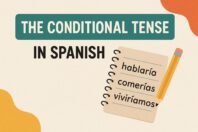The Difference Between Olvidar vs Olvidarse?

Get our free email course, Shortcut to Conversational.
Have conversations faster, understand people when they speak fast, and other tested tips to learn faster.
More infoToday we are talking about the differences between the Spanish verbs Olvidar vs Olvidarse, plus a form you might not have thought about: Olvidársele.
You probably already know Olvidar as the verb “to forget”.
Of course, in English, this verb can have three slightly different meanings:
a) to forget information
- Could you repeat your name again? I always forget it – ¿Podrías repetir tu nombre nuevamente? Siempre lo olvido
b) to forget a physical object
- Carlos forgot his phone again – Carlos olvidó de nuevo su celular
c) to forget (stop thinking) about someone in an intentional way
- We will never forget our dear and great friend Pablo – Nunca olvidaremos a nuestro querido y gran amigo Pablo
In Spanish, we can express the above using three different forms: olvidar, olvidarse de and olvidársele.
As we will explain in this post, the difference between each form of the verb is subtle.
1) Olvidar
The verb olvidar can be used in several ways, with the main one being to forget a piece of information. In this case, the speaker is normally assuming responsibility for forgetting a piece of information.
Olvidar is a transitive (rather than pronominal) verb, which means it requires a direct object, but doesn’t require any preposition.
The subject is the person who forgets, and the direct object is what is forgotten.
This means that you cannot use olvidar by itself, you must say what you forget.
Let’s see some examples:
- We forgot the bread and the ham, so we’ll have to go to the minimart again – Olvidamos el pan y el jamón, así tendremos que ir al mercadito de nuevo
- They have forgotten the tickets – Ellas han olvidado las entradas
- I won’t forget her face, it was beautiful – No olvido su rostro, era hermoso
Now, let’s deconstruct each example to see what is the subject + verb + direct object.
| Subject | Verb (olvidar) | Direct Object |
| Nosotros | olvidamos | el pan y el jamón |
| Ellas | han olvidado | las entradas |
| (Yo) | no olvido | su rostro |
Below, you can see how olvidar is conjugated in the indicative tenses: past, present and future simple
| Personal Pronoun | Present Simple | Past Simple | Future Simple |
| Yo | olvido | olvidé | olvidaré |
| Tú | olvidas | olvidaste | olvidarás |
| Él, Ella, Usted | olvida | olvidó | olvidará |
| Nosotros(as) | olvidamos | olvidamos | olvidaremos |
| Ellos, Ellas, Ustedes | olvidan | olvidaron | olvidarán |
In addition to expressing the idea of “not remembering” information, this verb has two other meanings:
a) To reinforce (or warn) against not completing an action
- Do not forget to bring your homework tomorrow – No olvides traer mañana tu tarea
b) To intentionally ignore (or forget) something
- We will forget this little incident for everybody’s sake – Olvidaremos este pequeño problema por el bien de todos
2) Olvidarse de
On the other hand, olvidarse is a pronominal verb, which means that reflexive pronouns are needed.
It should always be attached to a de preposition (although that’s not always the case when used informally by native speakers).
Olvidarse de is commonly used when talking about “forgetting to do something”.
For example:
- Martín has forgotten his dad’s birthday – Martín se ha olvidado del cumpleaños de su papá
- Did you forget to go to the meeting?, it was the day before yesterday – ¿Te olvidaste de ir a la junta? Fue antier
- They forgot to watch the soccer match, it was very exciting – Se olvidaron de ver el partido de fútbol, estuvo muy emocionante
Below, you can see how olvidarse is conjugated in the indicative tenses: past, present and future simple
| Personal Pronoun | Present Simple | Past Simple | Future Simple |
| Yo | me olvido | me olvidé | me olvidaré |
| Tú | te olvidas | te olvidaste | te olvidarás |
| Él, Ella, Usted | se olvida | se olvidó | se olvidará |
| Nosotros(as) | nos olvidamos | nos olvidamos | nos olvidaremos |
| Ellos, Ellas, Ustedes | se olvidan | se olvidaron | se olvidarán |
3) Olvidársele
Finally, the bonus verb – otherwise known as a Intransitiva Pronominal or Bipersonal verb.
This form is used when the subject is actually the object you forget, and the indirect object is the person who forgets.
It’s worth mentioning that this structure (like other pronominal verbs such as: romperse (to break), perderse (to lose) etc.) is used when the speaker wishes to shirk responsibility or intention (perfect for when you “forget” to take out the trash)
Let’s review how it is structured:
| Indirect Object | Direct Object | Olvidar (Present Simple) |
| Se | me | olvida |
| te | olvida | |
| le | olvida | |
| nos | olvida | |
| les | olvida |
Examples:
- I have forgotten every single word you said before – Se me ha olvidado cada palabra que dijiste
- They always forgot to close the safe – A ellos siempre se les olvidaba cerrar la caja fuerte
- We hope you don’t forget to take your pills – Esperamos que no se te olvide tomar tus pastillas
Now, let’s see a recap of what we covered in this post.
As you will see, three forms of the verb pretty much mean the same thing (albeit carrying subtle differences we spoke about).
| Type of Verb | Verb | Example | English |
| Transitive | Olvidar | Olvidé mis zapatos ayer | I forgot my shoes yesterday |
| Pronominal | Olvidarse de | Me olvidé de mis zapatos ayer | I forgot my shoes yesterday |
| Intransitiva Pronominal or Bipersonal | Olvidársele | Se me olvidaron mis zapatos ayer | I forgot my shoes yesterday |
Olvidar vs Olvidarse vs Olvidársele: Exercises
Fill in the blanks with the correct form of each verb
1. ___ (yo, olvidársele, past simple) contarle el chisme a mi hermana
2. Casi siempre ___ (nosotros, olvidar, present simple) estudiar español los fines de semana
3. No ___ (tú, olvidarse de, imperative) entregar tu informe semanal, por favor
4. A María y su hermanito generalmente ___ (olvidársele, present simple) tomar sus vitaminas
5. Ustedes ___ (olvidar, present perfect) el examen de nuevo, ¿no?
6. ¿___ (tú, olvidarse de, pluscuamperfect) de decirme la verdad? No puedo creerlo
7. Luisito siempre ___ (olvidar, imperfect) la tabla de multiplicar del 8
8. Si ___ (nosotros, olvidársele, present simple) tu dirección, ten por seguro que te llamaremos
9. A María Daniela ___ (olvidársele, present simple) desayunar antes de ir a la universidad
10. No queremos que ___ (tú, olvidar, present simple / subjunctive) a tus viejos compañeros de clase
Answers
1. Se me olvidó contarle el chisme a mi hermana
2. Casi siempre olvidamos estudiar español los fines de semana
3. No te olvides de entregar tu informe semanal, por favor
4. A María y su hermanito generalmente se les olvida tomar sus vitaminas
5. Ustedes han olvidado el examen de nuevo, ¿verdad?
6. ¿Te habías olvidado de decirme la verdad? No puedo creerlo
7. Luisito siempre olvidaba la tabla de multiplicar del 8
8. Si se nos olvida tu dirección, ten por seguro que te llamaremos
9. A María Daniela se le olvida desayunar antes de ir a la universidad
10. No queremos que olvides a tus viejos compañeros de clase



